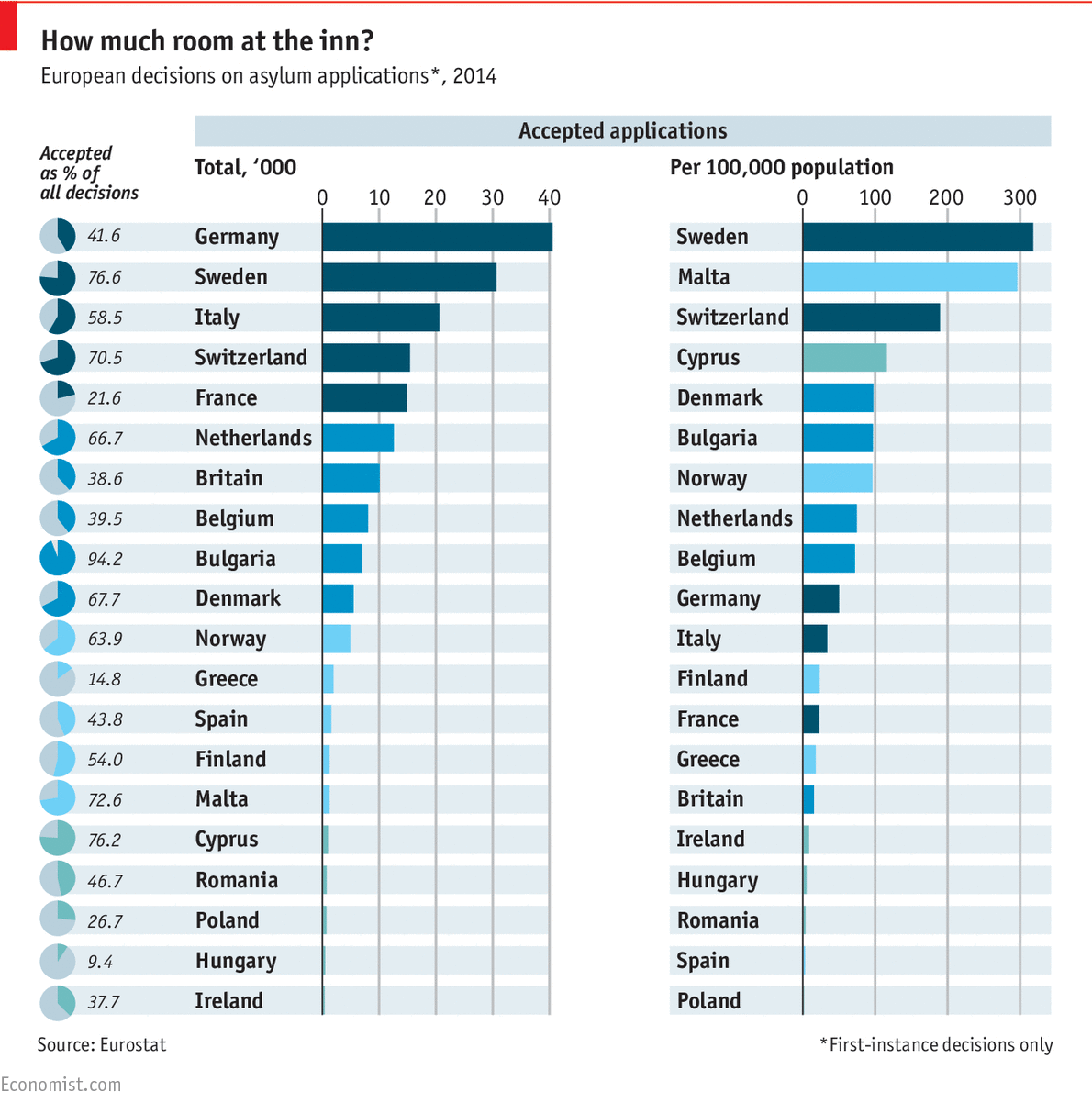What Does the Refugee Crisis Mean for the U.S.?
By:
The plight of refugees fleeing conflicts in the Middle East and North Africa reached a new level of intensity in the public imagination since last week, when a graphic photo of a three-year-old Syrian boy, washed up on a Turkish beach, drowned and lifeless, sparked international outcry over the way countries are receiving migrants.
The tragic fate of young Aylan Kurdi, who was reportedly fleeing violence in the northern Syrian town of Kobani, became especially emblematic of refugees' struggles as they escape tumult in their home countries, but it was hardly the only horrific example. Just days before Aylan's picture surfaced, the decomposing bodies of 71 migrants were discovered in Austria, found suffocated to death in the back of a truck belonging to a Slovakian chicken meat company—not to mention the estimated 2,500 who have died attempting to cross the Mediterranean in unsafe, overcrowded boats.
The migrant crisis in Europe has in recent days led to loosening restrictions in numerous countries for thousands of desperate people seeking refuge there. Some of the continent's largest economies, including France, England, and Germany, which said it could absorb 500,000 refugees a year for a few years, have all pledged to do what they can to address the growing problem. On Tuesday, German Chancellor Angela Merkel voiced her support of increasing the European Union's refugee quota plan by 160,000, adding that those increases may still be insufficient.
As European leaders work to increase their countries' capacities, pressure has increasingly been focused on the U.S., where Syrian refugee acceptance quotas are greatly overshadowed by their European counterparts. Since the Syrian conflict began in 2011, the U.S. has accepted some 1,500 refugees from the war-torn country, but humanitarian groups, along with a group of Senate Democrats, have called for that number to be raised by more than 60,000. A petition asking the Obama administration to settle at least 65,000 Syrians by 2016 has nearly met its signature goal in just over one week.
 The Economist - economist.com
The Economist - economist.com
The U.S. has an annual refugee quota of about 70,000, which each year is composed of a different international breakdown. According to the latest available refugee admittance data for fiscal year 2013, there were nearly 20,000 Iraqis, around 4,200 Cubans, and 16,000 Burmese that made up some of those 70,000, but only 36 Syrians, who belong to a cohort that some estimates peg to make up around a quarter of the world's refugee population. According to human rights advocates, the number of resettled Syrians has likely increased slightly since 2013, but that number could be much higher.
"We're big enough to do much, much more," Shannon, Scribner, humanitarian policy manager at Oxfam America, which has called on the U.S. to resettle 70,000 Syrians, told ATTN:. "We can absorb those people, we have the infrastructure, we have those basic services—we just need the will."
The U.S. has contributed the largest amount of financial assistance to combat the crisis, but Scribner emphasized the need to streamline the country's resettlement processes to accommodate for already-existing incoming populations from Central and South America, as well as more Syrians. "It's not just a Syrian issue, or an issue for the region; it's not an issue for Europe—it's a global issue in terms of resettlement," she said.
There has been political pushback to admitting more Syrians, with members of Congress and 2016 Presidential hopefuls citing concerns over an increased risk of terrorism, however, observers are waiting for a federal review of the refugee ceiling, set to be released in the coming weeks.
There are indications from Washington that suggest the number could be increased, too. Last week, a State Department official told the Guardian that the U.S. remains committed to its refugee admittance program and has a keen eye on the Syrian problem, adding that the department would "continue to look at a series of options to increase our Syrian admissions... and expect to see an increase in that number in fiscal year 2016."
"The administration is actively considering a range of approaches to be more responsive to the global refugee crisis, including with regard to refugee resettlement," Peter Boogaard, a spokesman for the National Security Council said Monday.
